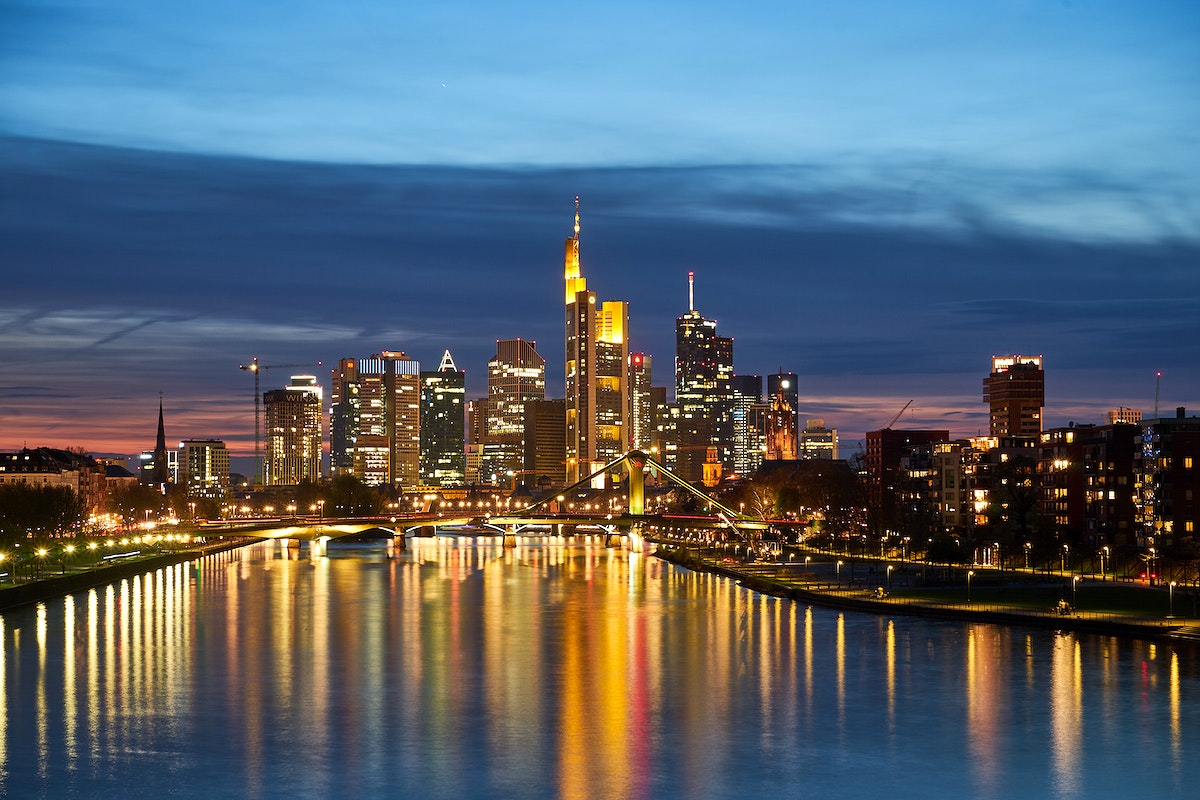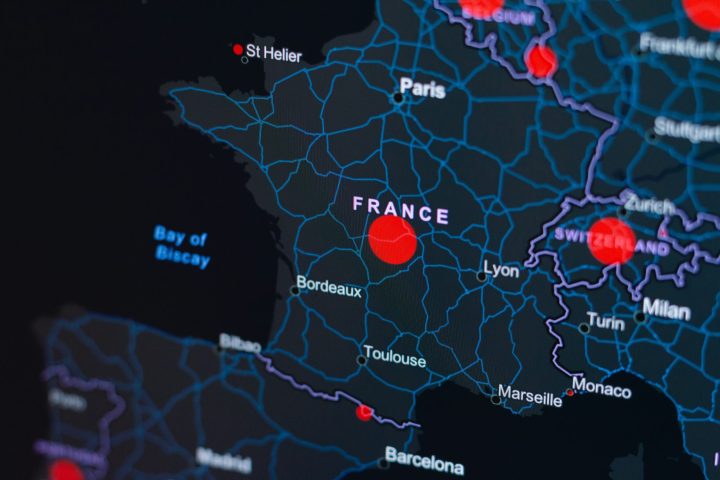Top 100 companies in Germany in 2025
Written by
Kinga EdwardsPublished on
Discover the top 100 companies in Germany for 2024. Explore leaders, innovative firms, and best of the best industries.

Many people associate Germany with their cars. Volkswagen and BMW are world-renowned brands and are usually related to high quality and reliability. But there’s more than that.
Today, we’re bringing you closer to not only 100 companies in Germany that you should know but also some key takeaways on the actual landscape – and what to do to become the new one on the list.
Company landscape in Germany – entering into 2025
The business landscape in Germany is influenced by market trends, global events, financial shifts, and emerging technologies. Some sectors are booming, while others are facing new challenges. But one thing is clear – staying competitive requires adaptability.
So, what factors are shaping the success (or struggles) of German companies this year?
Let’s break it down and see what 2025 has in store.
Financial metrics and market capitalization changes
Germany’s economic landscape showcases notable developments in financial performance and market capitalization across various sectors.
The KPMG Financial Performance Index (FPI) for German companies indicates a nuanced performance across sectors. The “Infrastructure and Real Estate” sector has demonstrated resilience, while sectors such as “Raw Materials and Natural Resources” have faced challenges due to global market dynamics.
Germany’s stock market capitalization is projected to reach $2.32 trillion in 2025, reflecting the country’s robust economic framework. Leading companies continue to play a pivotal role in this growth. SAP, for instance, maintains its position as Germany’s most valuable company, with a market capitalization of $322.92 billion. Siemens and Deutsche Telekom follow, with market capitalizations of $166.58 billion and $166.42 billion, respectively.
Looking ahead, Germany’s economy is poised for cautious optimism. The DAX Index, comprising the country’s top 40 companies, is expected to deliver earnings per share growth exceeding 10% in 2025, marking the highest growth among European markets.
The impact of global events on German companies
Global events have a profound impact on German companies. For example, trade tensions, particularly with the United States, pose significant challenges. The U.S. administration’s consideration of imposing tariffs on European imports has raised concerns among German exporters. The automotive sector, a cornerstone of Germany’s economy, is especially vulnerable. Proposed U.S. tariffs could lead to drop in exports to the American market, prompting companies to consider relocating production to the U.S. to mitigate potential losses.
Geopolitical uncertainties, such as the conflict in Ukraine, further complicate the economic environment. Rising energy prices and potential disruptions in supply chains add to the challenges faced by German businesses
Despite these hurdles, there is a silver lining. The DAX index, representing Germany’s top 40 companies, has risen by 25% since early 2024, outperforming other major European stock indices.
This growth underscores the resilience of German firms, many of which generate a significant portion of their revenue from international markets.
Sustainability and renewable energy
One of the most noteworthy trends – not only in Germany – is the growing emphasis on sustainability and renewable energy. Companies like Nordex, which focuses on renewable energy sources, have gained prominence. This aligns with Germany’s national goals for sustainability and indicates a broader shift in the business landscape towards eco-friendly initiatives.
Innovation in company growth
Innovation has become one of the main differentiators among the top companies in Germany. Whether it’s advancements in automation, digitization, or sustainable practices, the companies that have invested in innovation are the ones showing remarkable resilience and growth. This is particularly evident in sectors like IT, where innovation is an actual business strategy.
Global expansion and market reach
Another trend worth noting is the global expansion strategies employed by German companies. Many of the top 100 companies have diversified their market reach, venturing into emerging markets in Asia and Africa. This global footprint can boost revenue and mitigate risks associated with economic downturns in specific regions. It’s a strategy that has paid off, especially during the recent global challenges.
Employee well-being and corporate culture
Employee well-being and corporate culture have become critical pillars of success for companies in Germany and worldwide. A strong focus on well-being boosts employee morale and enhances productivity, retention, and innovation. Companies prioritizing mental and physical health are better equipped to attract top talent, particularly as younger generations increasingly value work-life balance and supportive environments. Even 81% of employees consider corporate culture crucial when choosing a job.
Moreover, firms that take the well-being of their employees seriously report much higher productivity levels. And according to a Gallup survey, companies with high levels of employee engagement report 21% greater profitability than those without such initiatives.
Updated categories and industry leaders
We are getting closer to presenting the ranking of the top 100 companies in Germany in 2025, which comes from CompaniesMarketcap.com and ranks German companies according to various criteria on an ongoing basis. This ranking is meticulously updated to reflect the most current data.
From year to year, we can see changes among the industry leaders. Traditional sectors like the automotive and chemical industries continue to hold strong positions, but digital and tech sectors are rising in prominence.
In ranking below, you can find the top 5 industries:
1. Automotive
- Number of companies: 14 (e.g., BMW, Mercedes-Benz, Volkswagen, Porsche, Daimler Truck)
- It focuses on manufacturing and selling vehicles, including cars, trucks, and related components.
- The industry also includes related services like maintenance, logistics, and leasing.
2. Engineering and manufacturing
- Number of companies: 13 (e.g., Dürr, Fuchs Petrolub, HeidelbergCement, Hochtief, Krones, Nordex, Jungheinrich)
- Engineering and manufacturing firms develop advanced machinery and infrastructure for industries ranging from construction to renewable energy.
- These companies are critical to maintaining Germany’s status as a global leader in high-precision engineering.
3. Chemicals
- Number of companies: 9 (e.g., BASF, Covestro, Lanxess, Wacker Chemie)
- It involves the production of chemicals used in manufacturing, agriculture, pharmaceuticals, and consumer goods.
- These companies form the backbone of Germany’s industrial landscape, supplying critical raw materials to sectors such as automotive, construction, and healthcare.
4. Banking and finance
- Number of companies: 9 (e.g., Deutsche Bank, Commerzbank, Deutsche Börse, Hannover Rück)
- The financial sector underpins the economy by offering investment, insurance, and capital markets services.
- These companies ensure the smooth functioning of global trade, risk management, and financial innovation.
5. Retail and e-commerce
- Number of companies: 8 (e.g., Ceconomy, Zalando, Douglas Group, Hornbach Baumarkt, Metro AG, CTS Eventim, BayWa)
- Retail and e-commerce companies connect consumers to a wide array of goods, from fashion to home improvement.
- These businesses shape consumer habits and serve as an engine for domestic and international trade, adapting to digital transformation and sustainability trends.
The rest of the categories belong to, healthcare, biotechnology, energy, technology, telecommunications, logistics and transportation, food, and consumer goods.
And now, without further ado – let’s see who made our list.
Top 100 companies in Germany: List 2025
Now, let’s eventually check the whole TOP 100 companies in Germany list 2025.
The list is in alphabetical order and filtered by revenue.
Source (view date: 31.01.2025)
Final thoughts
As you can see in the table above, there are many successful companies that were born in the German market. All of them are creating power in the German economy and working hard to create a good reputation for German products.
Germany’s resilience in the face of global challenges, combined with its commitment to innovation, e-commerce possibilities, and responsibility for sustainability, points to a promising future for companies that operate in the country.
Looking for more inspiration or information about the German market?


